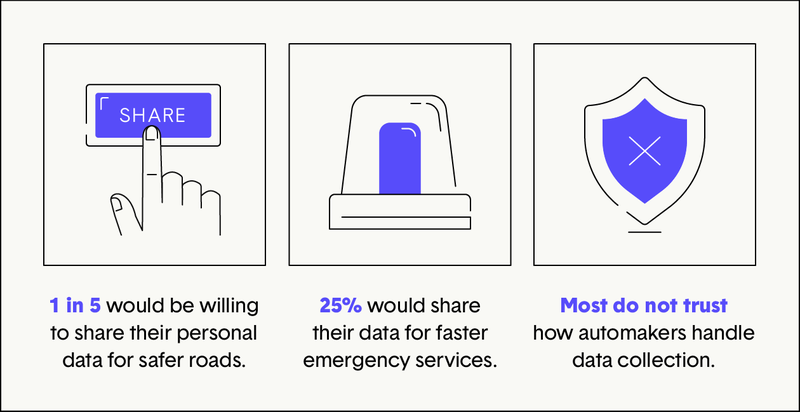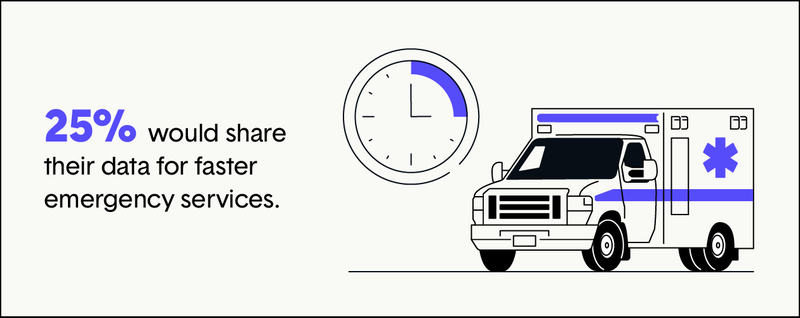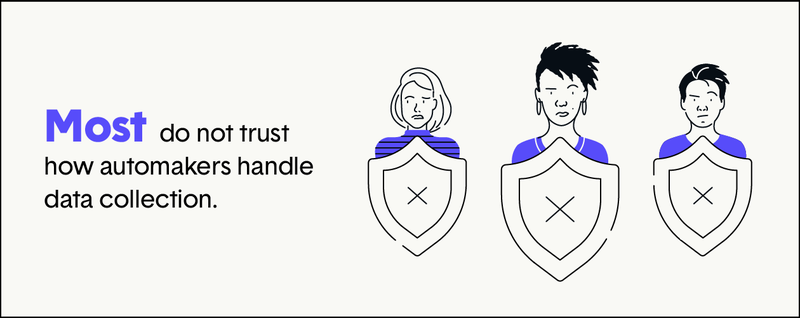Though we take it for granted that phone companies and social media sites collect our personal data, many of us don’t realize that cars can actually do the same. “Connected” cars, or cars with access to the internet, are one of the fastest growing IoT trends. Though three years ago only 20% of cars sold were connected, it’s estimated that by 2020 75% of all vehicles sold will be connected. Today, connected cars are gathering up to 25 GB of personal data every hour that they are in use, and sharing this personal data with automakers.
To put things in perspective, 25 GB, or 25,000 MB of data is what you would use when streaming dozens of HD movies in just an hour. In the past, connected cars would collect data via smartphone connection, allowing companies to monitor the driver’s location. These days, new connected cars can actually record startlingly detailed information such as the weight of the driver, where the driver places their hands on the steering wheel, and even the driver’s eye movements.
Though this data can be used to create safer roads and enable faster emergency response vehicles, the collection of personal data doesn’t sit well with many skeptical drivers. Unfortunately, they may not have much of a choice in the matter, as automakers are already sharing personal data with advertising companies. The experts at The Zebra recently polled 3,000 Americans to see get their opinions on this issue.
Surprisingly, less than 1 in 5 of those polled stated that they would be comfortable with car companies monitoring their personal data even if it led to safer roads. Similarly, though perhaps even more shocking, only 25% of respondents said they would consent to personal data sharing if it meant faster reactions from emergency responders. The same trend followed in regards to alerts about dangerous weather conditions. It seems that Americans would rather take road safety into their own hands rather than give up valuable personal data.
Given these statistics, it isn’t surprising to note that an overwhelming majority of survey responders, 80% to be exact, stated that they don’t trust how automakers use their data. This is understandable, as right now there are few regulations in place regarding what types of personal data can be collected and used by U.S. companies.

It should be noted that drivers usually have to agree to data tracking and collection when they sign up for connected car systems or services. Car companies generally refrain from sharing certain types of personal data with third-parties without the driver’s permission, including location, health, or behavior. However, driver permission is not required when sharing this data with emergency services or when using it for internal research.

So, who does own personal data collected from connected cars? As mentioned above, the U.S. currently has very few laws regarding data permissions, and this blurred line can cause tensions between drivers and car companies. Some sources say that automakers are the owners of in-car personal data in most cases, though drivers own crash data stored in the car’s black box.
Why do car companies go through all the trouble of collecting personal data? It’s simple – personal data is extremely valuable to marketers and advertisers looking to target the right audience, and therefore automakers can turn a tidy profit selling personal data to third-parties. It’s not all bad, as much of this data is used for programs that would ultimately help drivers such as safer roads and faster emergency response vehicles. Personal car data is also used to optimize ride-sharing services like Lyft and Uber and to target drivers with location-specific discounts.

However, this distrust of companies with personal data extends far beyond the auto industry. Due to the numerous data scandals and breaches of the past decade, consumers are losing faith in companies that exploit their data. Connected car data harvesting is the natural next step as we become more dependent on the IoT.















